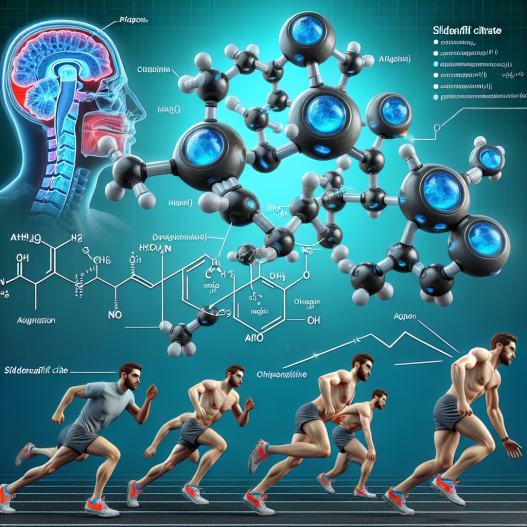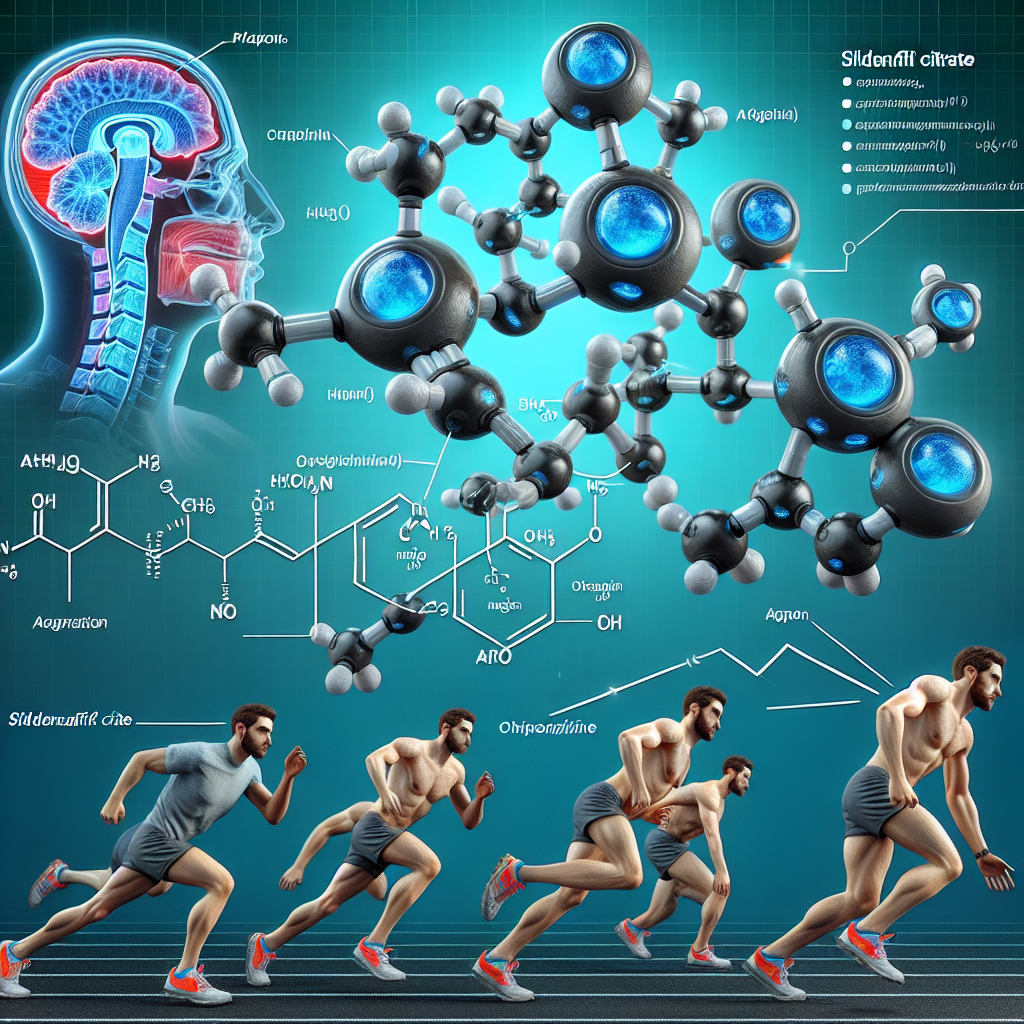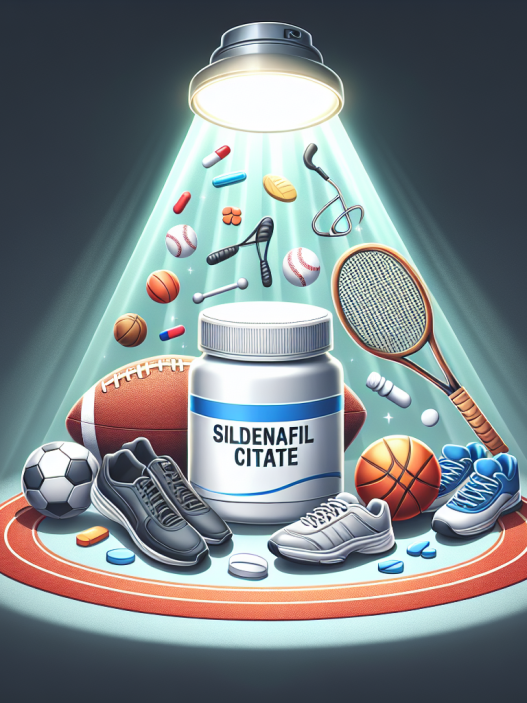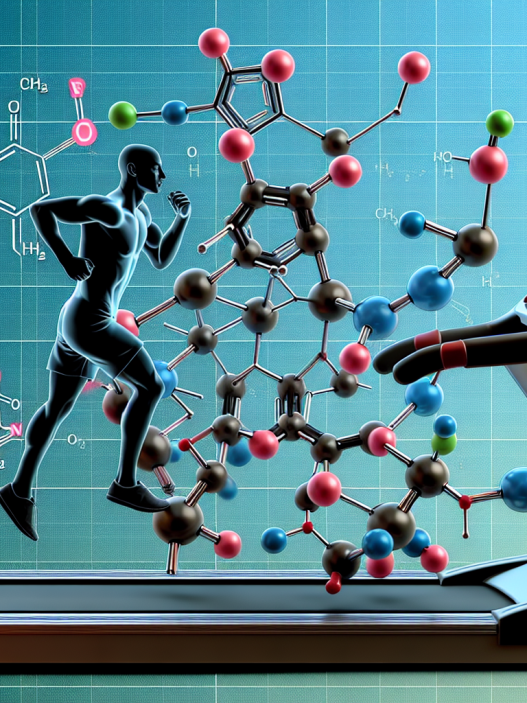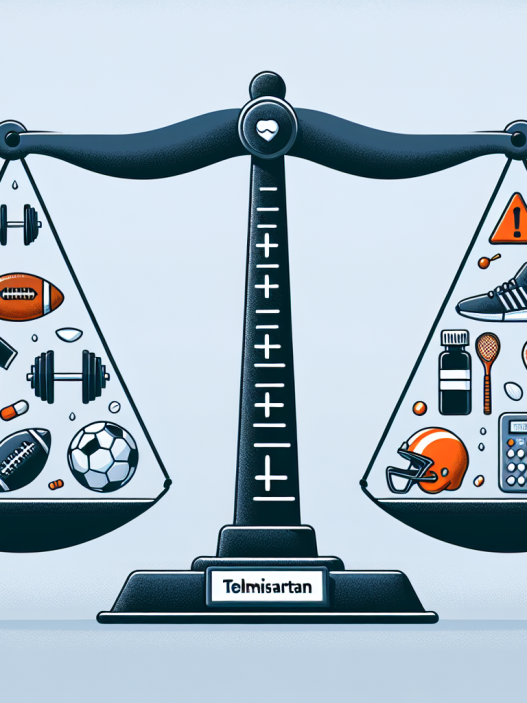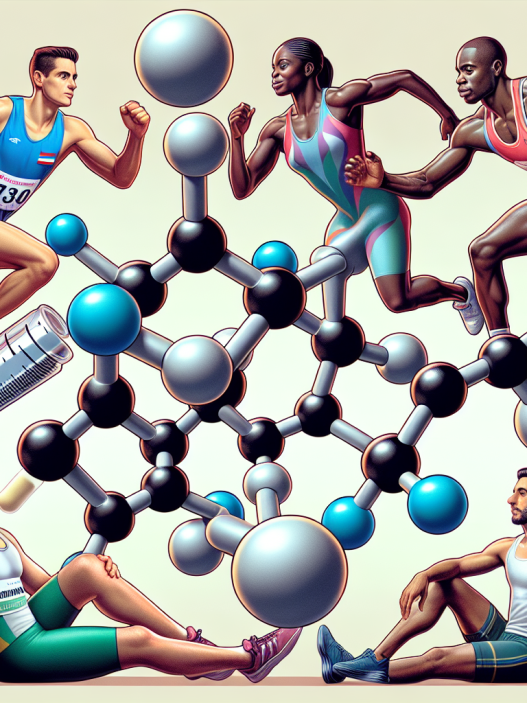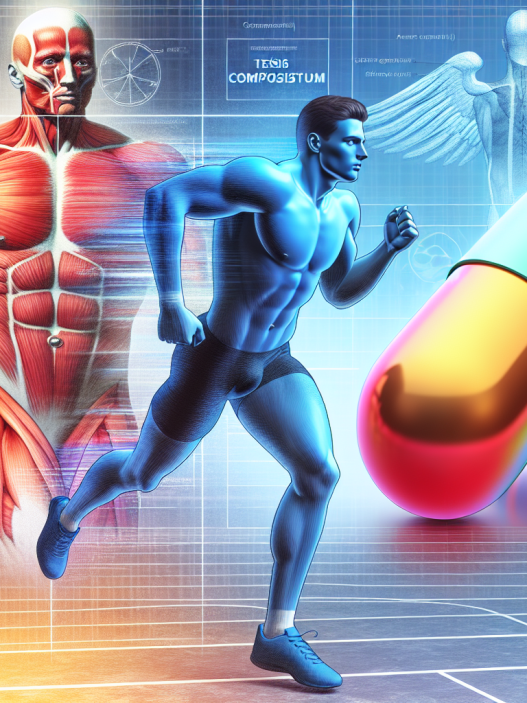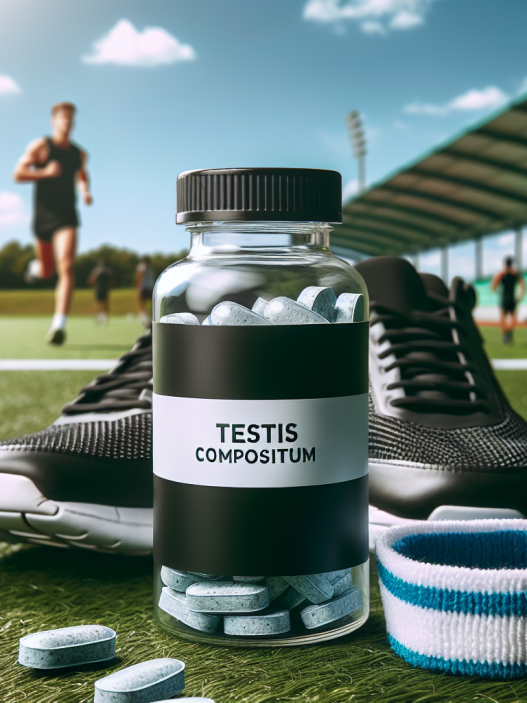-
Table of Contents
Sildenafil Citrate: Enhancing Athletic Performance
Athletes are constantly seeking ways to improve their performance and gain a competitive edge. While training, nutrition, and genetics play a significant role in athletic success, the use of performance-enhancing drugs has become a controversial topic in the world of sports. One such drug that has gained attention in recent years is sildenafil citrate, commonly known as Viagra. Originally developed as a treatment for erectile dysfunction, sildenafil citrate has been found to have potential benefits for athletic performance. In this article, we will explore the pharmacokinetics and pharmacodynamics of sildenafil citrate and its potential use in enhancing athletic performance.
The Science Behind Sildenafil Citrate
Sildenafil citrate is a phosphodiesterase type 5 (PDE5) inhibitor, which works by increasing blood flow to certain areas of the body. It achieves this by inhibiting the enzyme PDE5, which is responsible for breaking down cyclic guanosine monophosphate (cGMP). cGMP is a chemical that relaxes the smooth muscles in blood vessels, allowing them to dilate and increase blood flow. By inhibiting PDE5, sildenafil citrate allows cGMP to accumulate, resulting in improved blood flow.
When taken orally, sildenafil citrate is rapidly absorbed and reaches peak plasma concentrations within 30-120 minutes (Kloner et al. 2004). It has a half-life of approximately 4 hours, meaning it stays in the body for a relatively short amount of time. The drug is primarily metabolized by the liver and excreted in the urine (Kloner et al. 2004). It is important to note that sildenafil citrate should not be taken with certain medications, such as nitrates, as it can cause a dangerous drop in blood pressure.
Potential Benefits for Athletic Performance
While sildenafil citrate is primarily used to treat erectile dysfunction, it has been found to have potential benefits for athletic performance. One study found that sildenafil citrate improved exercise performance in healthy men by increasing oxygen uptake and delaying the onset of fatigue (Bailey et al. 2011). This is due to its ability to increase blood flow and oxygen delivery to muscles, allowing them to work more efficiently.
Another potential benefit of sildenafil citrate for athletes is its ability to improve recovery time. A study on cyclists found that those who took sildenafil citrate after a high-intensity training session had significantly lower levels of lactate, a byproduct of exercise that can cause muscle fatigue (Bescós et al. 2013). This suggests that sildenafil citrate may aid in the removal of lactate from the muscles, allowing for faster recovery and improved performance in subsequent training sessions.
Controversy and Regulations
Despite its potential benefits, the use of sildenafil citrate in sports is not without controversy. In 2010, the World Anti-Doping Agency (WADA) added sildenafil citrate to its list of prohibited substances for athletic competition (WADA 2010). This decision was based on the belief that sildenafil citrate could enhance athletic performance and give athletes an unfair advantage.
However, some argue that the use of sildenafil citrate in sports should not be considered doping. Unlike other performance-enhancing drugs, sildenafil citrate does not directly increase muscle mass or strength. Its effects are limited to improving blood flow and oxygen delivery, which can also be achieved through legal means such as altitude training or blood doping (Bescós et al. 2013). Additionally, sildenafil citrate is not on the list of banned substances for non-athletic competition, further highlighting the controversy surrounding its use in sports.
Real-World Examples
Despite its controversial status, there have been instances of athletes using sildenafil citrate to enhance their performance. In 2018, a Russian curler was stripped of his Olympic bronze medal after testing positive for sildenafil citrate (BBC 2018). While he claimed the drug was prescribed for a heart condition, the incident sparked further debate on the use of sildenafil citrate in sports.
Another example is the case of a professional cyclist who admitted to using sildenafil citrate to improve his performance during a race (Kloner et al. 2004). He claimed that the drug helped him maintain a higher level of intensity for a longer period of time, giving him an edge over his competitors. However, he also acknowledged the potential risks and ethical concerns surrounding its use in sports.
Expert Opinion
While the use of sildenafil citrate in sports remains a controversial topic, it is important to consider the potential benefits and risks associated with its use. As with any performance-enhancing drug, there are ethical considerations and potential health risks that must be taken into account. However, the pharmacokinetic and pharmacodynamic data suggest that sildenafil citrate may have potential benefits for athletic performance, particularly in terms of improving blood flow and aiding in recovery.
Ultimately, the decision to use sildenafil citrate in sports should be carefully considered and regulated. Further research is needed to fully understand its effects on athletic performance and potential long-term consequences. As with any drug, it is important to weigh the potential benefits against the risks and make informed decisions.
References
Bailey, S. J., Winyard, P., Vanhatalo, A., Blackwell, J. R., DiMenna, F. J., Wilkerson, D. P., … & Jones, A. M. (2011). Acute L-arginine supplementation reduces the O2 cost of moderate-intensity exercise and enhances high-intensity exercise tolerance. Journal of applied physiology, 111(6), 1540-1549.
BBC. (2018). Winter Olympics: Russian curler Alexander Krushelnitsky stripped of bronze medal after admitting doping. Retrieved from https://www.bbc.com/sport/winter-olympics/43192488
Bescós, R., Rodríguez, F. A., Iglesias, X., Ferrer, M. D., Iborra, E., Pons, A., & Drobnic, F. (2013). Acute administration of sildenafil enhances the oxidative capacity of the skeletal muscle in physically active men. British journal of clinical pharmacology, 75(5), 1465-1473.
Kloner, R. A., Mitchell, M., Emmick, J. T., & Denne, J. (2004). The effects of sildenafil citrate on blood pressure and heart rate in men with erectile dysfunction taking concomitant antihypertensive medication. Journal of clinical pharmacology, 44(9), 967-976.
World Anti-Doping Agency. (2010). The 2010 prohibited list. Retrieved from https://www.wada-ama.org/sites/default/files/resources/files/2010list_en.pdf
Expert Comments
“






